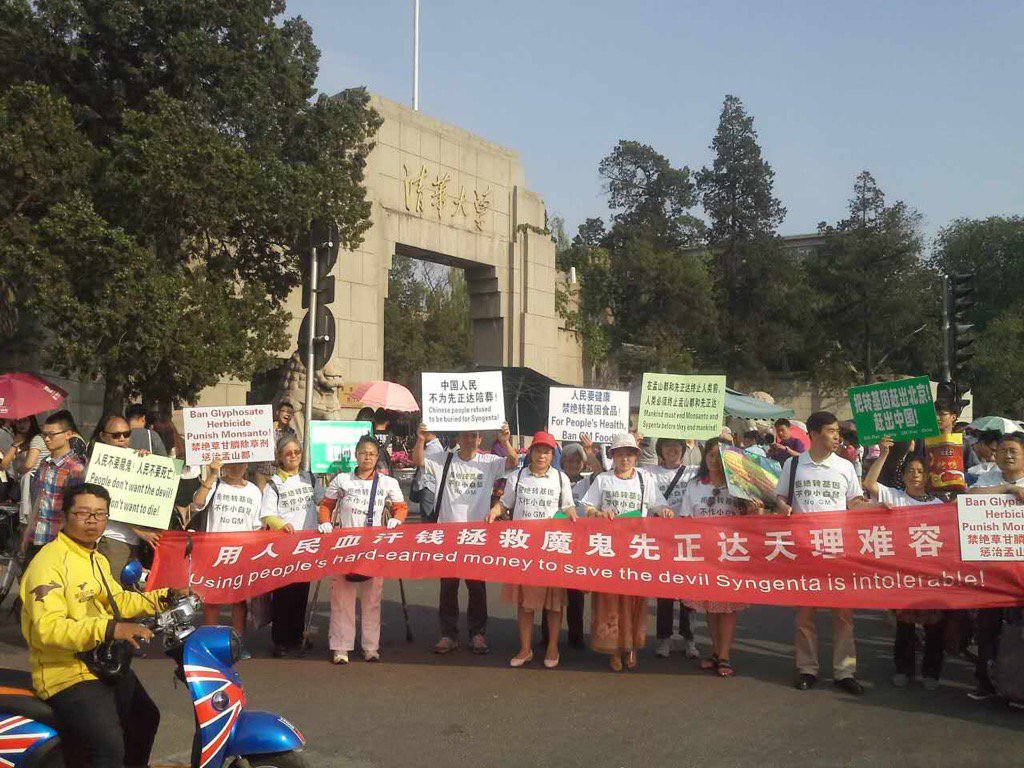You can read about the reason I’m asking this in the spoiler. TLDR I’m just wondering if there’s some debunking I can do since western media is oh-so-not-trustworthy
spoiler
I’m in some IRL debate (Well, online but in a closed chat) with some libs. They are talking about the right-wingers saying Taylor swift is being paid off to spread democratic votes, whatever, hollyweird are all dems, no conspiracy needed.
I mentioned that we need to actually, you know, actively keep conspiracy theories from spreading, and my liberal friend is gishgaloping a bit, but I’ll bite since they are sincere, even if wrong.
They came back with “Well china has conspiracy theories”, which I didn’t mention china, I didn’t mention anything about censorship, it’s just gishgalloping like I said, but anyway…
Any truth to this one? I mean being anti-gmo is not rare, so I’m not surprised if it was true. I don’t have a good handle on high quality china news (And cannot read their sites myself, even with translators it’s a slow experience).
Edit: Oops, I had to go AFK after posting this and didn’t get to clarify as the comments were all being. I meant do Chinese people broadly believe in the conspiracy theories around GMOs such as causing cancer or making your DNA change or something like that. Of course GMOs are complicated science and are a tool used by capitalists to patentize (did I make up that word? Lol) the food industry, which is a natural science and typically difficult to patent.



It’s as if these surveys are intentionally crafted to give the result they’re fishing for.
Also the option “Disagree, debate on GM food should base on science” also feeds into Chinese liberals’ talking point that Chinese patriots favor patriotism over science, as if those two are mutually exclusive.
Thank you for responding! I’m happy to be able to pick the brains of real people with real experiences on this platform.
I didn’t have a long time to look at the study itself, so I apologize that this was easy to find. But were those questions translated? I just don’t know if “patriot” is a common word over there.
It does seem weird the way they phrased things as if there are real binaries between them. Why can’t somebody both be pro-science and pro-patriot?
I have an undergrad in psychology at an American university, which for the most part is kind of a waste of time, but I did spend some time reading research and doing and reading the results of surveys, and this always bugged me. Surveys are just a terrible way to truly understand somebody’s opinion.
Yeah the questions were translated and the original data in Mandarin is not publicly available, from the study:
The usage of 爱国者 (patriot) is probably not as common as 爱国 (patriotic), 爱国主义 (patriotism), or even 小粉红 (pinky/pinko, both a derogatory term to refer to Chinese patriots/nationalists, but also normalized by patriots to use to call themselves, kind of like the n-word for African Americans). The Chinese tech brand aigo is literally 爱国者 (patriot) in Chinese. Mentions of US “Patriot” missiles in the news are also instances where you can find 爱国者 (patriot).
As for surveys themselves, I can’t speak for whether it is accurate to paint a representation of any large population with a sample size of less than 0.00015% or 1 in 666,667 of the population, even if it’s claimed to be statistically relevant. In this case this particular question about US bioterrorism was constructed in such a loaded way that the results shouldn’t be taken seriously.
Thank you for your insight!